Educate children through direct experiences | Part 35
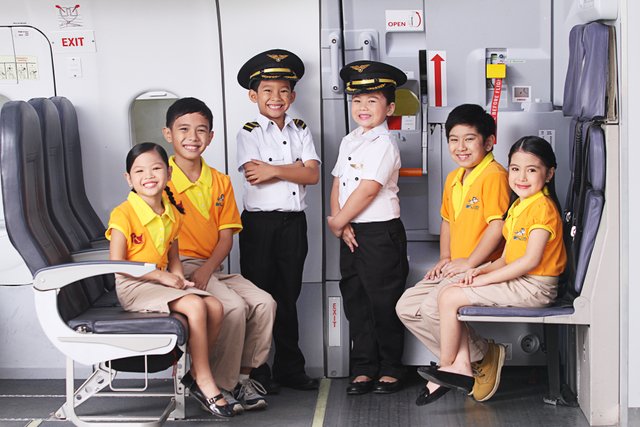
Source
Currently, direct experiences are considered the most powerful stimulant for personal, intellectual and professional development. When it is allowed to experience directly from reality, it is possible to give way to the discovery and acquisition of knowledge, which is essential to develop in an environment that merits a sustainable knowledge, due to the constant change and human development.
Being part of the direct experience is feeling free to discover, investigate, perceive, interact and this allows generating a unique autonomy to achieve a priority objective. This translates into an independence to carry out simple or complicated tasks that are carried out efficiently with self-confidence.
Reinforcing learning through these experiences is rewarding. Any activity of direct experience can be carried out both in environments prepared for the activity and in the open air, which contributes to the efficient performance of the individual.
Direct experience of the children, as cabin crew.
The activity that is carried out so that the experience is rewarding, implies exercising responsibilities as a member of the cabin crew. In this fascinating adventure, children will play different roles that will allow them to see what adult life is like, what this implies and how learning is important to successfully perform the functions of a job.
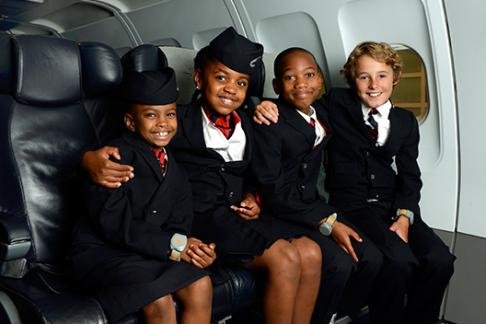
Source
Having such responsibility on an airplane requires good behavior, a correct way of speaking, proper and impeccable clothing. This covers much more than it seems, which means that being part of a cabin crew translates into a job that must be carried out with good judgment so that failures do not occur, so the trip should be enjoyable for both traveler as for who assumes responsibility for the transport of passengers.
Children will learn to manage languages, which are fundamental for this type of work, therefore, learning from other cultures and languages is as essential in this field of work as in any other.
Objectives of the direct experience.
- Be able to take responsibility for your actions.
- Succeed in dealing with other people.
- Losing the fear of flying.
- Losing stage fright.
- Instruct to give good treatment to other people.
- That the students learn other languages, besides the native one.
Function to be exercised by the educator, so that the experience of the children as cabin crew is carried out successfully.
The educator should talk with the students about the direct experience, what it means and involves attending and being part of the crew team.The following should be made known to students:
- It is important that they behave at all times, since it is a job of great responsibility and demand.
- You can not break any rule, since it is a planned activity.
- It will be explained that on the plane they will carry out the daily tasks of a cabin crew member, to become familiar with the work and in this way to directly experience what it is to have the responsibility of said position.
Learning and diversion activities, where the students will learn the job as cabin crew.
The work that children should do as cabin crew is of great value and is a satisfying experience. They will learn to exercise functions of logic, responsibility, mastery, thinking and it is advantageous for their future development.Girls and boys can be pilots and hostesses, but it is essential to understand that without adequate studies, they can not have the performance and the achievements that this deserves. Since the transfer of passengers is one of the greatest responsibilities of man and should be very prudent in that regard.
Activities:
Reception of apprentice students for cabin crew.
It is important to inform what a member of the cabin crew should and should not do, it is always essential to comply with the guidelines of the airline and not deviate from the protocol.
Explain in detail the security measures, how to serve passengers, always maintaining a positive attitude to give a good impression.
It is intended that children provide a service they hope to receive at some point, as complaints about other means of transport appear constantly and that is what is intended to avoid with this activity, in addition to learning what is necessary for a large post responsibility, making the interaction more pleasant and uncomplicated.
Management of corresponding equipment for flight execution.
Students will experience being in the cockpit of an airplane, simulating the flight and experiencing it in a real way with the pilots in charge of providing them with this job opportunity.
Accompanying the pilot and learning to pilot, as there will be a live class on how to maintain the right course. These are details that will value and serve in future projects. This requires: perseverance, dedication and discipline, which are part of this work, they will realize that a being without studies can hardly assume this type of responsibility, since it is a challenge that requires the acquisition of special knowledge.
Reception of passengers.
It is a way of learning to socialize, respect and know the correct way of a deal for another person.
The passengers that will travel on board the plane, in this case are "classmates, teachers and cabin staff", who will evaluate their participation in the travel line.
It is necessary for children to act freely, but always remembering the rules that the airline has to make the trip enjoyable.
Being a passenger is part of the activity.
The children, in addition to being trained in the cabin crew, must act as passengers, which implies to fulfill in the same way with the guidelines of the airline, paying attention to the members of the crew and here it will be evaluated: capacity of attention, the way they treat the staff who provide the service and even how they behave during the flight.
At each stop that is made per trip, the children will change the routine so that everyone participates in the activities.
Communicated to passengers.
It is important that the cabin crew, orient the child, about what they should inform the passengers, a note will be given to the children, in case they forget the correct words to say.
Mentioning:
- The existence of the call button at the top. This button is only when it is urgently required, some member of the cabin crew, "flight attendant".
- The student in charge will mention where the restrooms are.
- It is necessary to remain calm.
- Before starting the flight, it is necessary to put the safety belt.
- They should not leave waste in the seats.
- Keep the suitcase in the trunk.
- You will be notified when the plane is going to land and in this way you will be able to get out of the seats, before that, stay calm.
The children will explain in detail, where the emergency equipment is located, how to use the equipment, how to place it and how to act in case of an unexpected eventuality.
They are necessary actions, which must be taken responsibly. It is always better to be cautious and not omit any step that the law contemplates.
Emergency exit.
Children, in addition to explaining the use of emergency equipment, should convey the information with simple words, that there is only one corridor through which all passengers must pass, this must be kept clear of obstacles and only when the crew orders to get up from, is when they proceed to such action.
Attention to passengers.
Through this activity, children learn to behave, to be cordial, to use appropriate language to address other people.
It is not just about offering refreshments, but about providing the correct attention, which deserves a service in accordance with the important role played by the airline. The children will take into account that in a flight they can interact with people of different nationalities and that knowing several languages helps them to relate better.
Flight termination.
The students in the company of flight crew professionals, affectionately bid farewell to the passengers. This is part of the service that must be provided to fulfill the success of the flight.
It is necessary to always have the attention disposition, since that reflects the personality and the disposition to work.
Activities to do in the classroom, when you finish the direct experience as cabin crew.
The educator, when returning to class with the students, should ask questions, such as:
Has the experience been satisfactory?
Would you like to experience again as a cabin assistant?
Have you learned the rules to follow to pilot?
Do you think this work is beneficial?
Activity:
The educator will ask the students to make an exhibition in teams of two people and they will mention what they liked most about the experience, the rules that must be fulfilled, what should and should not be done as a member of the cabin crew and as a passenger. Doing a simulation of what was explained.

Being an educator is a job that is done with passion, therefore, commitment is required and it is what should be transmitted to the learner, so that in this way he learns through the example to follow.
Greetings educators and motivators of education.
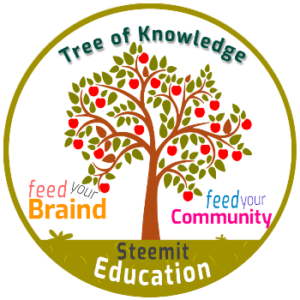
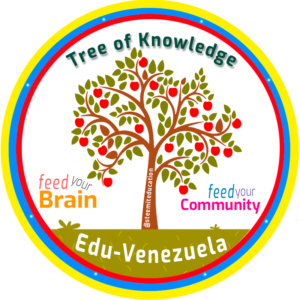

Make The World A Better Place
Posted from my blog with SteemPress : http://cindycam.vornix.blog/2018/07/06/educate-children-through-direct-experiences-part-35/
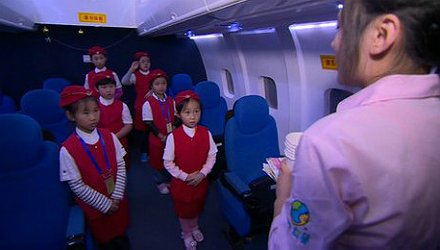
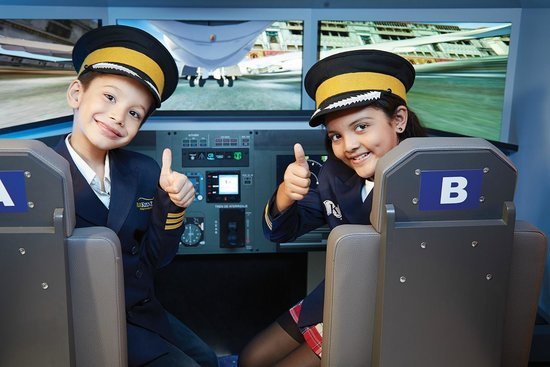
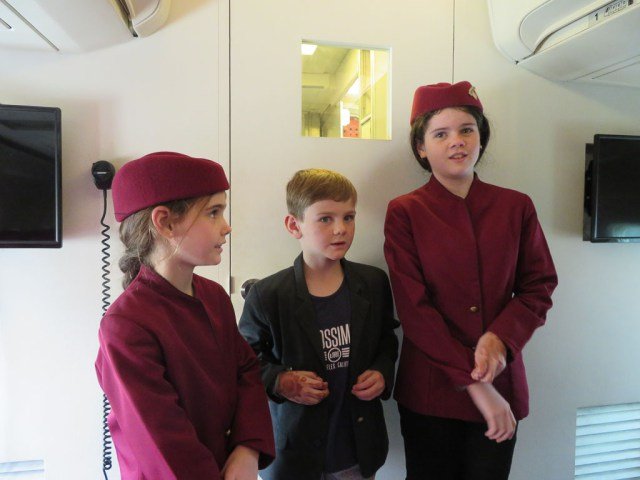
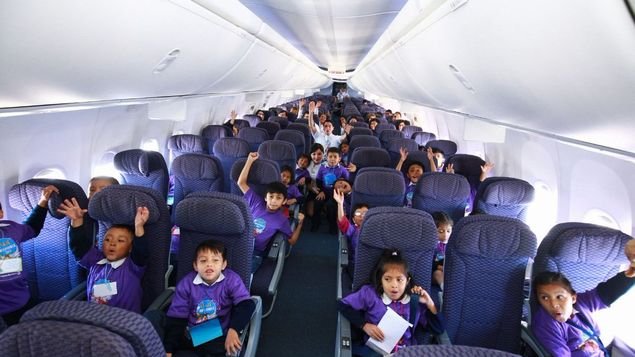

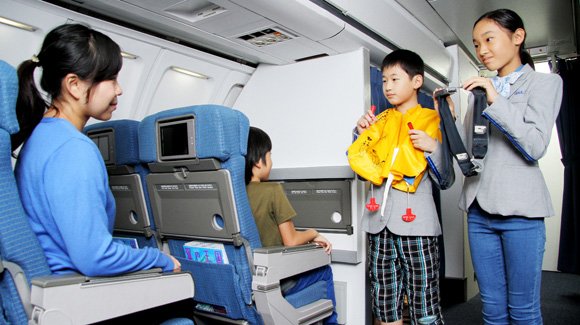
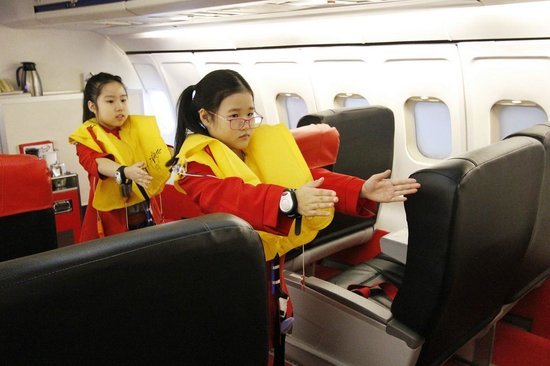
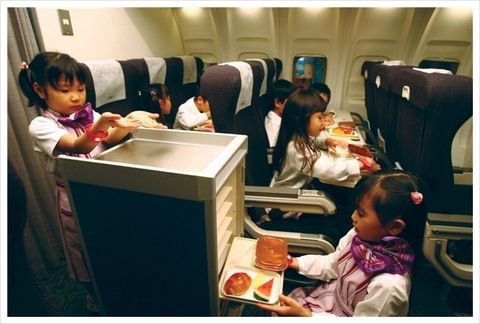
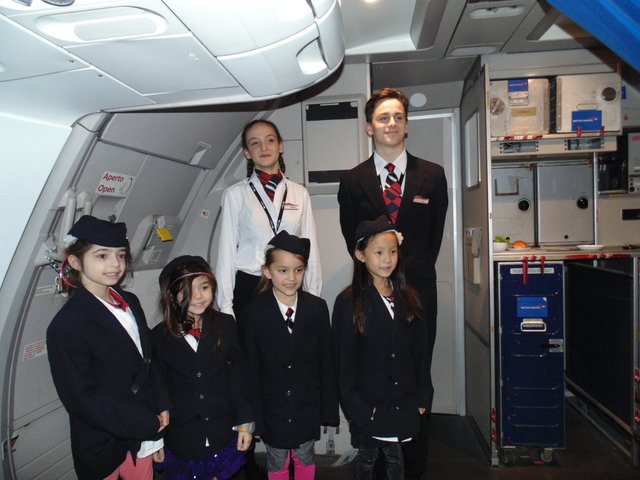
If you would like to support the educational community by delegating to @steemiteducation, please click on any of the following links. This will ensure that more teachers are supported on a daily basis.
100SP 200SP 300SP 400SP 500SP 750SP 1000SP 2000SP 3000SP 4000SP 5000SP 10,000SP 25,000SP